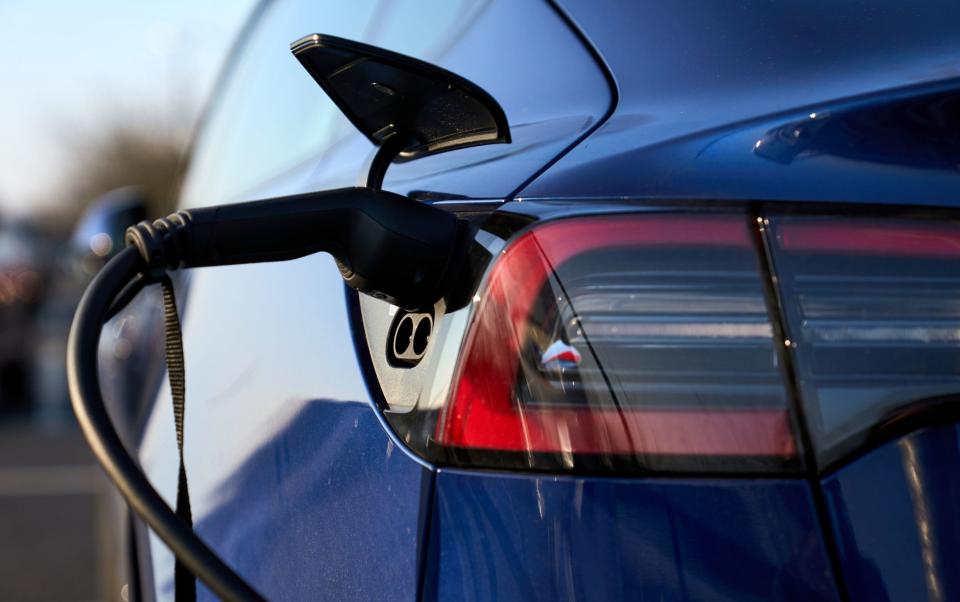Toyota hails battery breakthrough for electric cars

Toyota has hailed a “technological breakthrough” in electric car batteries that it claims will halve their cost, size and weight.
The carmaker, which is the world’s largest by number of vehicles sold, said the development in its solid state battery technology research also had the potential to increase the range of electric vehicles.
Solid state batteries are much lighter and less expensive to manufacture than current liquid electrolyte lithium-ion batteries.
Keiji Kaita, who heads up Toyota’s research and development centre for carbon neutrality, said: “For both our liquid and our solid-state batteries, we are aiming to drastically change the situation where current batteries are too big, heavy and expensive.
“In terms of potential, we will aim to halve all of these factors.”
Toyota claimed the new technology will deliver a 20pc improvement in its cars’ so-called cruising range compared with its current batteries and will be charged in 10 minutes or less.
A cruising range refers to a steady state of driving such as on a motorway, as opposed to stop-start travelling because of heavy traffic in a city, for example.
Toyota has committed to commercialising its new solid state batteries, with ambitions to have cars run using the new technology on the roads as early as 2027.
In June the company announced plans to create a battery EV with a cruising range of 1,000km in three years from now.
Toyota said its discovery hinges on inexpensive lithium iron phosphate, in contrast with current battery technology that relies on a liquid electrolyte, also known as battery acid.
Current EV lithium-ion batteries use a liquid electrolyte to help store and release electrical energy. This makes the batteries large and heavy, which create potential risks if the battery’s cells are damaged in a crash and the acidic electrolyte escapes.
Typical lithium-ion batteries currently used in most electric cars store about 200 watt-hours per kilo (Wh/kg).
A US laboratory experiment earlier this year reached 675Wh/kg with a lithium-air solid state equivalent, promising much longer ranges for electric vehicles.
EV batteries also need significant supplies of lithium and cobalt to manufacture, with China one of the largest and fastest-growing suppliers of lithium.
Around three-quarters of the world’s supply of cobalt comes from the Democratic Republic of Congo, where most cobalt mines are owned or controlled by Chinese interests.
Toyota’s EV journey has been bumpy, with its bZ4X SUV model being late to market through a combination of the pandemic and problems with wheels falling off that required a recall in late 2022.
Koji Sato, Toyota’s chief executive, told The Telegraph in May: “The world is changing rapidly in regard to battery EVs, so I think that Toyota must be able to provide solutions in that field so we will push forward rapidly in this area.”

 Yahoo Finance
Yahoo Finance 